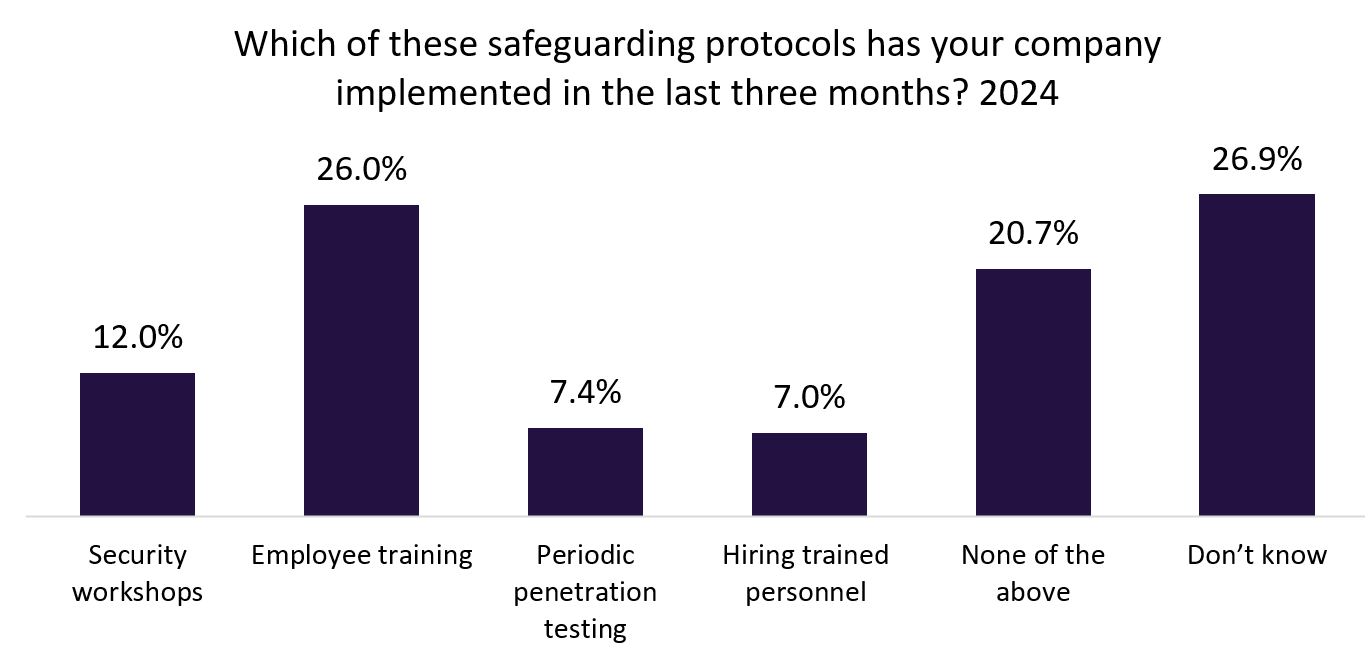In an era where digital transformation is essential for many organisations, the threat landscape has significantly evolved, particularly concerning cyberattacks. A GlobalData poll indicates that the adoption of safeguarding protocols remains low. As companies face these increasing risks, it is crucial to acknowledge the urgent need for implementing robust cybersecurity measures.
A GlobalData poll run on Verdict Media sites in Q4 2024 revealed that 26% of organisations have adopted employee training as a cybersecurity safeguarding protocol within the past three months. Additionally, 12% of companies reported implementing security workshops, 7.4% used periodic penetration testing, and 7% cited hiring trained personnel. Notably, a significant 20.7% of participants indicated that their organisations have not engaged in any of the aforementioned measures, suggesting a passive approach to the implementation of cybersecurity protocols.
Meanwhile, a GlobalData poll run on Verdict Media sites in Q2 2024 found that 36.6% of respondents identify cyber risk as the greatest challenge facing the insurance industry over the next three years. The frequency of cyberattacks is on the rise, with a November 2024 report from Howden revealing that over 50% of UK organisations have encountered at least one cyberattack in the past five years, culminating in an estimated loss of approximately £44bn in revenue. This research underscores the growing prevalence of cyber threats, especially in light of the increasing adoption of AI technologies, which are perceived to further intensify the risk of cyberattacks.
The relatively low adoption rates of existing safeguarding protocols can be attributed to several factors, including high implementation costs, a lack of expertise, and insufficient IT resources. According to a report by Howden, the average UK business could potentially achieve savings of approximately £3.5m over ten years by implementing essential cybersecurity measures. However, despite the potential financial benefits, many organisations remain hesitant to invest in these crucial measures. This reluctance may stem from a short-term focus on immediate operational costs rather than long-term risk mitigation and financial savings. To address these barriers, it is imperative for businesses to recognise the critical importance of cybersecurity in safeguarding their assets and reputation.
The insurance industry is crucial in this context, as it can provide organisations with vital information on cyber risks and effective mitigation strategies. An increase in cyber insurance penetration could enable companies to reduce costs while simultaneously enhancing their cyber resilience. This highlights the pivotal role that the insurance industry can play in promoting robust security measures and enhancing awareness within the business community.








